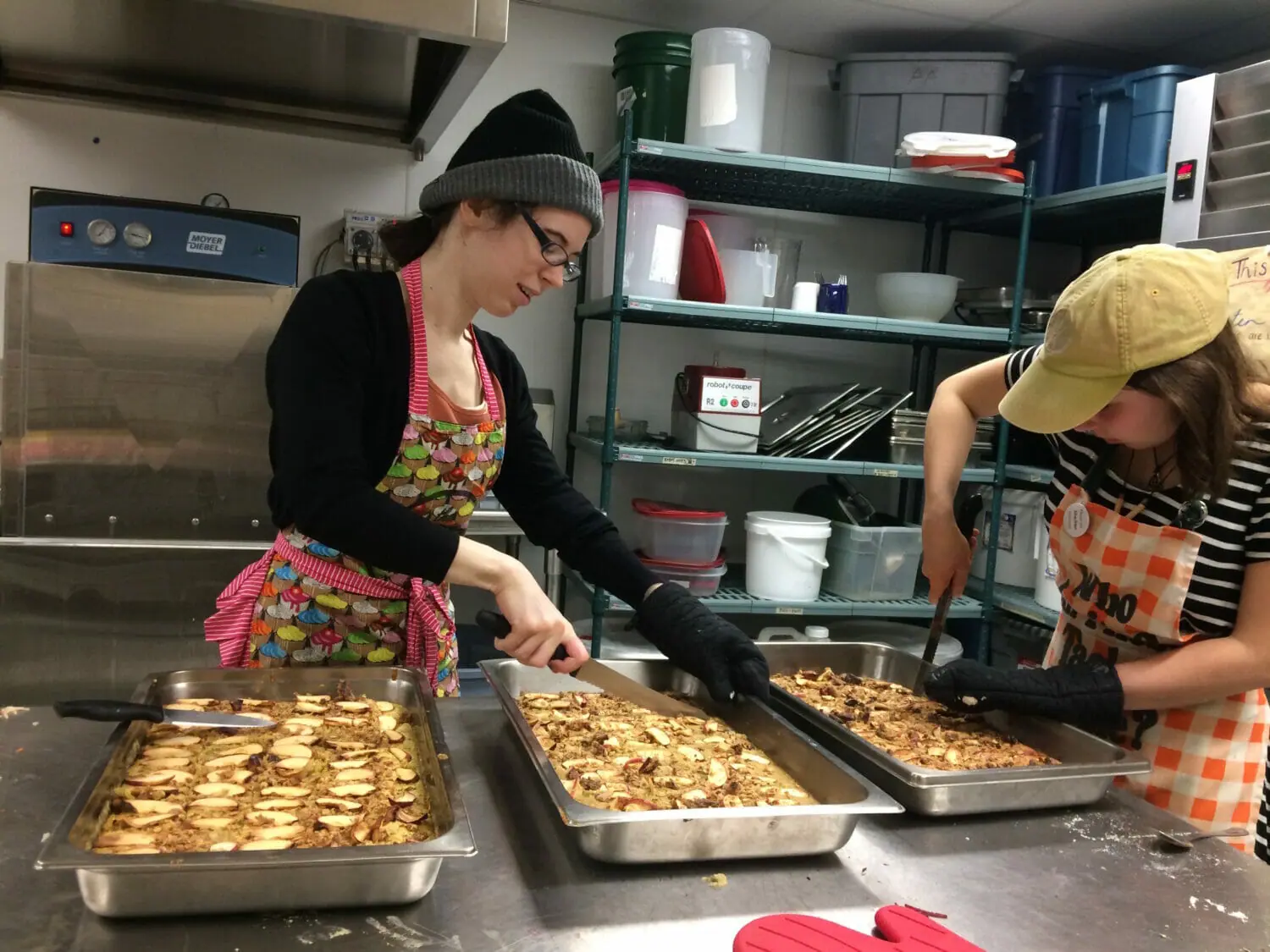The Loaded Ladle is hoping to gather at least 900 student signatures in support of a $1.50 levy increase.
Right now, each student pays $6 a year for three meals a week. That works out to about six cents a meal per student. With the proposed levy increase, the budget would rise to 12 cents a meal.
“We want to be able to do four regular servings a week, and in the future maybe even a full week of servings,” says Angela Hou, a Loaded Ladle board member.
The Loaded Ladle also hopes to expand to the Sexton Campus.
Society volunteer Grailing Anthonisen says the Loaded Ladle provides an important option for students who may not have enough money to eat well.
Anthonisen says she’s had friends who relied heavily on the Loaded Ladle to help with the financial stress of student life.
“If they didn’t have the Loaded Ladle, they wouldn’t eat that day.”
The Loaded Ladle operates in the community kitchen, which is super-sized and designed to feed about 200 people. On serving days, a line forms long before the one o’clock serving time.
The society began in 2009 as the “Campus Action on Food” group. They served meals from a big pot set up on a laundry board in the SUB.
Nearly a decade later, the Loaded Ladle is a levied society with a large, modern community kitchen of its own. But it hasn’t lost its political roots.
“It isn’t just about free food. It’s about the politics of food, and all the parts that go into who gets to eat certain foods, or who gets to have access to foods,” says Hou.
The Loaded Ladle is political in the sense that it offers alternatives. Their mandate is to use local food that supports Nova Scotian Farmers instead of big corporations.
“This is one small piece of this [student union] building that is supposed to be operated and run entirely by students, and is not in the hands of a large multinational corporation,” says Hou.
The Loaded Ladle also promotes food that is both vegan and free.
“We aim to support local farms and business and community groups that advocate for a more just society,” says Tess Pooran, the society’s volunteer coordinator.
“We hope that as folks learn about food justice they will begin to see food as not a commodity but a point of community.”


Recent Comments